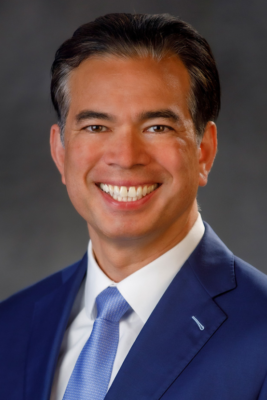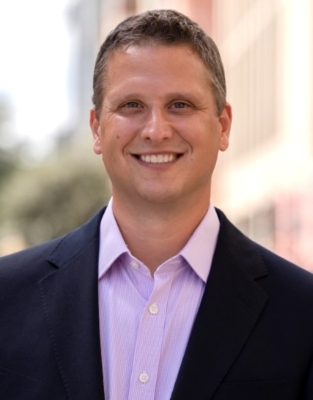‘ …we’re here to represent California’s beautifully diverse communities and ensure everyone can achieve their vision of the California dream. So we’re here for you…’ – Calif. AG Rob Bonta
BY TOM URIBES
CVHEC Communications/Media Coordinator
The Central Valley Higher Education Consortium, earlier this month, delivered the voices of two key leaders at the head of the quick changing education landscape facing the nation amidst policy and funding changes by the current White House Administration.
At the summit May 9, California Attorney General Rob Bonta told the leaders of higher education institutions in the Central Valley they are facing an “all-hands-on-deck moment” as changes under the Trump administration threaten educational equity and federal funding.
The day before at the quarterly meeting of the CVHEC Board of Directors – made up of the university and college chancellors, presidents and educational administrators of 28 institutions of higher education in the valley’s 10-county region – American Council on Education (ACE) Senior Vice President Jon Fansmith delivered a deeply informative and, at times, sobering virtual conversation including an alert about possible TRIO Programs funding cuts.
Both gatherings provided more than 175 participants the opportunity to review progress regarding ongoing strategies and initiatives in CVHEC’s quest to improve educational outcomes under the summit theme “Navigating Higher Education in a New Era – The Central Valley Way.”
“We are navigating a landscape shaped by sweeping policy shifts, federal restructuring, and the lasting impact of a historic pandemic,” Dr. Benjamin Durán, CVHEC executive director, told the assembly.
“At the same time, we are adapting to revolutionary changes in instructional delivery, integrating artificial intelligence into academic life and responding to the evolving demands of a dynamic workforce. These unprecedented challenges are not just obstacles—they are the defining forces of a new era in higher education. As the summit theme affirms, we are called to lead, adapt and innovate as we chart a course through this pivotal time.”
In addition to Bonta and Fansmith, the CVHEC summit, funded by the College Futures Foundation, included national and state lawmakers providing updates on the legislative front and representatives of the California’s four systems of higher ed sharing perspectives regarding White House policies on their respective landscapes statewide (see related story).
‘An all-hands-on-deck, all-tools-in-the-toolbox moment …’
Dr. Juan Sánchez Muñoz, chancellor of UC Merced and chair of the CVHEC board, introduced Bonta in the 2 p.m. virtual forum after lunch.
“As you know, the attorney general has been at the forefront not just for California, but nationally leading legal response to some very concerning directives from the federal government related to educational funding,” said Chancellor Muñoz.
Bonta recounted that he and 19 other attorneys general have filed 20 lawsuits nationwide to stop such actions as freezing $3 trillion in capital critical federal funding that would threaten hundreds of billions of dollars in California annually as well as affecting immigration and international students.
“We also issued guidance to higher education institutions and K-12 schools in response to the Department of Education’s threats to withdraw federal funding from institutions that retain DEI programs and policies,” the attorney general said.
“Bringing our diverse perspectives to campus benefits all students and everyone deserves equal access to public education. Educational institutions should be encouraged to continue to foster diversity, equity, inclusion and accessibility.”
Bonta thanked the educators for protecting access to higher education and pledged his commitment to stand with them.
“The California Department of Justice is here to protect and defend, and enforce our state’s laws and protections,” Bonta told the summit participants. “And we’re here to represent all of California’s beautifully diverse communities and ensure everyone can achieve their vision of the California dream. So we’re here for you. And you can be sure that if Trump breaks the law or violates the Constitution, we will see him in court.”
Bonta noted that the attorneys general have successfully challenged the Trump administration “for conducting an illegal mass firing of nearly half of all employees at the US Department of Education.
“I sued the Trump administration for conducting an illegal mass firing of federal probationary employees,” he said.
Last week, a federal judge blocked the Trump administration from firing thousands of workers at the Department of Education, ruling that the announced terminations were a thinly veiled effort to dismantle the entire department without congressional approval. The judge said that the thousands of terminations announced in March “had deeply disrupted services for students, families and states, making processes less efficient.” [? check updates]
Also, another federal judge temporarily blocked the Trump administration from preventing Harvard from enrolling foreign students. [? check updates]
Bonta also addressed concerns about the treatment of immigrants, an issue colleges are facing with their DACA students.
“Now more than ever, it is imperative that we make sure all immigrants and their families know the rights and protections afforded to immigrants under the law — rights and protections that I’m here to defend and to enforce,” Bonta said.
“This is an all-hands-on-deck, all-tools-in-the-toolbox moment where everyone needs to rise up and push back against the attacks and make sure that we’re continuing our pathway to progress.”
One summit participant said she was glad to hear the attorney general make that declaration that day.
Dr. Iliana Perez, executive director of Immigrants Rising based in Long Beach which works with immigrant students across the state supporting their pursuit of access to higher education, career opportunities and entrepreneurship, said the attorney general’s perspective around immigration as expressed in the virtual forum “is so needed at this moment in time.”
An alumna of CVHEC member Fresno State who wrote a blog for the CVHEC newsletter in February, Dr. Perez said, “There’s a lot of fear in the community. To have an attorney general that is definitely taking a stance that is supportive of the rights of all individuals in California, including immigrants, I think delivers the kind of message we need to hear. We need to hear that California stands with its residents, regardless of immigration status.”
Once undocumented herself, Dr. Perez has been an advocate for Dreamer students for over a decade, especially in the area of entrepreneurship, and asserts it is in the best interest of the community at large to provide access to higher education support for them.
“The reality is that undocumented students, and all immigrants in the state, are contributing to the economy,” Dr. Perez said.
“These students are graduating, they’re pursuing careers in a variety of different fields, they are contributing to the workforce. It really is a disinvestment if we don’t protect their rights, if we don’t protect the freedoms of all students. So this is a time for higher education leaders to be able to come together to really be thinking about how important it is to stand in support of students.
That was accomplished in the day’s panels beginning with Dr. Benjamin Durán, CVHEC executive director, in the opening welcome session, echoing the Chancellor Muñoz’ assessment that higher education in California — and across the nation — “is facing a transformative moment” that beckoned the valley’s education leaders to the summit.
It was also carried out the day before when the higher ed CEOs sat as the CVHEC Board of Directors and heard Fansmith after Duran laid out the board’s charge.
“As challenges in higher education continue to evolve — particularly for rural and underserved areas — CVHEC remains a critical force in ensuring that the Central Valley’s colleges and universities not only adapt but thrive,” Durán said.
This dynamic was underscored in ACE senior vice president Fansmith’s virtual presentation to the board about pressing national issues affecting higher education.
He was introduced by Chancellor Muñoz, a member of the ACE board who noted that Fansmith has a daily ongoing interaction with legislators in the halls of Congress.
“John is on the Hill almost every day, he’s in the entrails of all of these congressional offices both on the House and the Senate side and regularly provides updates to the ACE members,” said Muñoz who arranged for Fansmith to provide the CVHEC board “a sense of the temperature and the temperament of what he’s seeing in DC relative to higher education legislation.”
In the board session, Fansmith addressed the challenges campuses face surrounding immigrant student populations, an especially relevant issue in the Central Valley, which is home to a large immigrant and first-generation college student population.
He provided insights into the shifting landscape of federal education grants and how institutions can navigate these changes to continue supporting underserved students.
In particular, he discussed serious federal funding threats to higher education support programs such as TRIO.
Fansmith explained that the Trump administration’s proposed budget for the next fiscal year includes eliminating the TRIO program, along with other major cuts to educational support programs such as GEAR UP, work-study, Supplemental Educational Opportunity Grants (SEOG), and campus childcare.
While Congress is unlikely to approve these drastic cuts in full, even partial adoption could cause significant harm to institutions and students, he said.
Despite the proposed elimination, Fansmith expressed cautious optimism about TRIO’s future. He noted that TRIO enjoys strong bipartisan support, especially from influential lawmakers such as the Republican chairman of the Appropriations Committee.
He also emphasized the effectiveness of TRIO advocates within the Department of Education. However, recent political tensions have generated some pushback from outside education circles, he cautioned.
He summarized that, while TRIO faces real threats, its broad support in Congress gives it a better chance of survival than some other programs. Fansmith said he and his colleagues continue working in Washington to protect these critical resources for underserved students.
Duran said the two presentations underscored CVHEC’s mission and ideals.
“With continued collaboration and a shared vision, the consortium board meeting and summit reaffirmed the power of regional unity in advancing student success,” said Duran who is also president-emeritus of Merced College. “Bringing our leadership together in one room to engage in this dialogue is essential for shaping a voice for higher education the Central Way as we move forward.”




